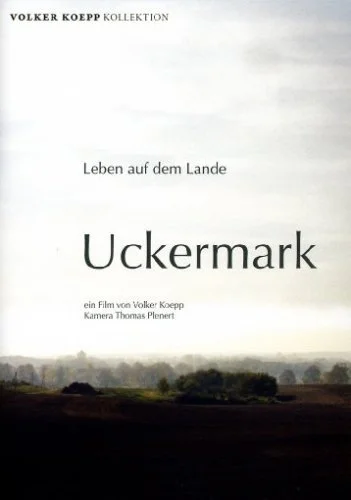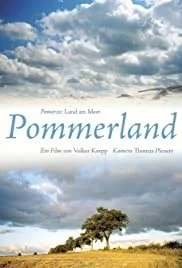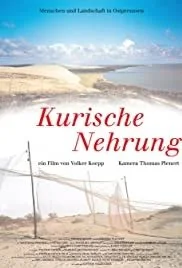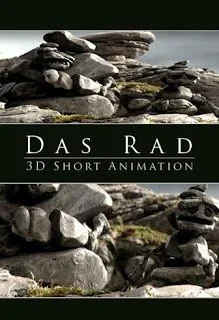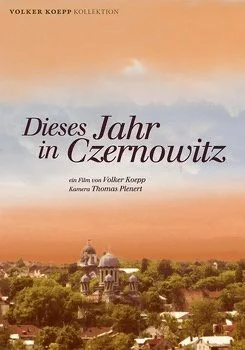- Activism
- Animation
- Asylum
- Austria
- Berlin
- Black Germans
- Childhood
- Cologne
- Colonialism
- Comedy
- DDR
- Documentary
- East/West Germany
- Environment
- Food
- Hamburg
- Health
- Holocaust
- Immigration
- Intergenerational Families
- Jewish
- Judicial system
- Lesbian/Gay
- Lübeck
- Munich
- National Socialism
- Politics
- Pomerania
- Racism
- Religion
- Sexism
- Short films
- Stuttgart
- Switzerland
- Twins
- Weimar Republic
Climate Warriors: Der Kampf um die Zukunft unseres Planeten
100 Prozent erneuerbare Energie – das ist technisch längst möglich. Doch die weltweite Energiewende stockt, denn mit ihr versiegen die Geldströme von Kohle, Gas und Erdöl. Wie können wir der Gier der Energiekonzerne trotzen und den Blick auf die Zukunft des Planeten richten? Eine globale Veränderung kann nur durch eine Bewegung von unten entstehen!
Uckermark: Leben auf dem Lande
Volker Koepp nimmt uns mit in die Uckermark, jenen so dünn besiedelten Landstrich nördlich von Berlin. Wie auf einer Bühne versammelt der Film eine Schar von Übriggebliebenen und Heimkehrern der Nachwendezeit. Landarbeiter, Bauern und zurückgekehrter Adel, ihre Erzählungen und Lebensgeschichten. Bisweilen skurril und tragikomisch, manchmal melancholisch und von trotzigem Idealismus.
Pommerland
In his documentary film, Volker Koepp portrays the picturesque Polish region of Pomerania. But although the region appears to be idyllic, its inhabitants are struggling with big problems. The villages and cities of Pomerania that traditionally live from agriculture are hit by unemployment rates of up to 75% after the meltdown of the state farms. While most of the young people leave the region, some of them take their chances and start fresh – for instance, a young couple that tries to rebuild an agricultural farm with the help of EU funding. Furthermore, older inhabitants, including a spry 90-year old retiree from the Uckermark region who grew up in Pomerania, tell stories about the region′s eventful past.
Schattenland: Reise nach Masuren
With Schattenland Volker Koepp and his long-time cameraman Thomas Plenert take us on a trip to the north-east of Poland to Masuria - probably the best known landscape of former East Prussia. Encounters with people who appear to be stranded away from the tourist areas of Masuria: farmers who use the short summers in the supposed idyll to wring grain from the barren soil. Ukrainians who were forcibly relocated after the Second World War and who moved to their old homeland after Poland's accession to the EU.
Kurische Nehrung
The ‘Kurische Nehrung’ is a promontory between the Baltic Sea and the Kaff, whose northern part belongs to Lithuania, while the south is Russian territory. This documentary feature depicts the landscape, the differences between the two countries, the opinions of the people and the German roots some of the inhabitants have.
Greetings from Fukushima
A young German woman bonds with an elderly Japanese woman while touring the Fukushima region of Japan in the aftermath of the 2011 earthquake.
Das Rad
Apparently, rocks are having conversations all around us, but they talk very, very slowly. Das Rad is, at times, quite funny (Hew, the larger of the two rocks, spends several millenia dealing with an algae “rash”), but the most impressive thing about this 9-minute short (aside form the animation, which is phenomenal) is the way it handles the passage of time.
Die 4. Revolution
We know that we can do something. Sun, wind, hydro and geothermal energy are natural sources accessible to everyone all over the world without making any difference. And they are renewable, free and available in the long run. Only the widespread knowledge about the possibilities of renewable energy can ignite an international movement and take the absolutely necessary energy transition. We need a quickly enlightening medium that conveys this knowledge comprehensibly and compactly.
Dieses Jahr in Czernowitz
Controlled in turn by Austria, Romania and Russia, Czernowitz was once a cultural (and highly cultured) melting pot with a Jewish population comprising about half its total 150,000. These days, it’s quieter, smaller, less diverse, and again a source for exodus–though now for economic rather than political reasons. Among those journeying back to explore their roots and visit family burial sites are the U.S.-based writer Norman Manea, actor Harvey Keitel (whose segs are the least engaging), a Berlin cellist, and two middle-aged Viennese sisters. Their visits are variably painful or pleasant, provoking meditation on the concepts of home, native language and belonging.


